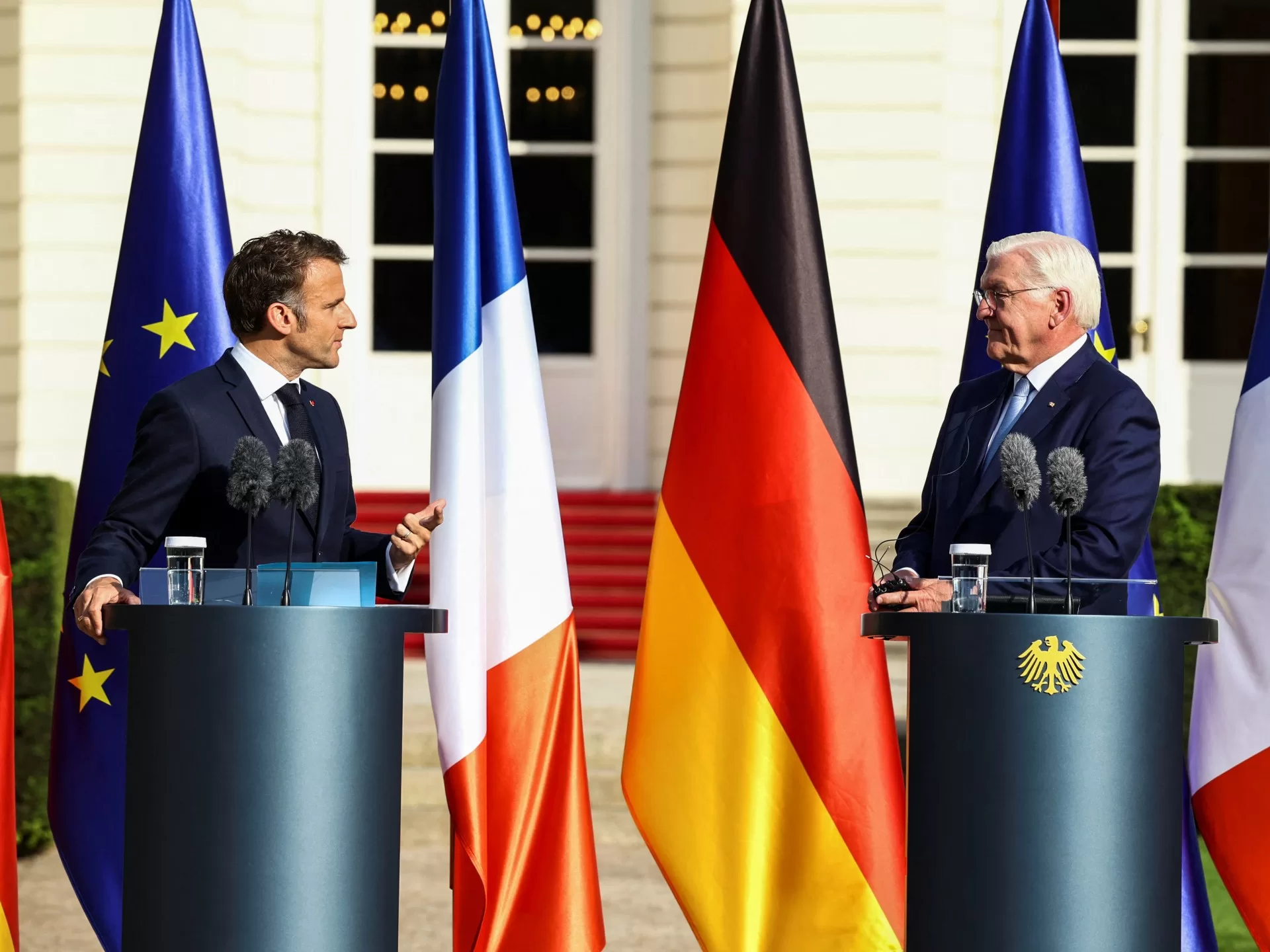For the first time in nearly a quarter of a century, a French president visits Berlin to warm frosty ties.
“Franco-German relations are indispensable and important for Europe,” said Macron at the start of his three-day state visit to Germany on Sunday. He rebuffed the suggestion that the relationship, often described as the engine of Europe, has begun to stutter.
“That is not true. We are moving forward,” Macron said through a translator.
Upon landing in Berlin, Macron immediately travelled to the German capital’s government quarter to meet with President Frank-Walter Steinmeier and attend a democracy-themed festival.
Steinmeier greeted Macron and called his visit “proof of the depth of the Franco-German friendship”. He said that despite sometimes differing on individual policy points, Berlin and Paris always “come to an agreement in the end”.
The French president also emphasised the importance of the European elections in June and called the European Union a defender of democracy and common values. He warned of a “form of fascination for authoritarianism which is growing” in the two EU nations. “We forget too often that it’s a fight” to protect democracy, Macron said.
If the nationalists had been in power in Europe in the last years, “history would not have been the same”, he said, pointing to decisions on the coronavirus pandemic or Russia’s invasion of Ukraine.
The German president too noted how rights “did not fall from the sky”, saying they need to be fought for.
“There is much from both presidents the stress from them about the need for European citizens to think very carefully when they cast their vote in the EU elections in a few weeks,” said Al Jazeera’s Dominic Kane.
Polls show that the European elections could turn into a major potential embarrassment for Macron as his coalition is trailing well behind the far right and may struggle to even reach third place. In Germany too, all three parties in Chancellor Olaf Scholz’s coalition are polling behind the far-right Alternative for Germany (AfD) party in surveys, despite a series of scandals embroiling the anti-immigration party.
After the talks with Steinmeier, Macron is due to bring his message to Dresden in the former East German Saxony state, where the AfD has a strong supporter base.
Tuesday sees Macron in the western German city of Munster and later in Meseberg, outside Berlin, for talks with Scholz and a Franco-German joint cabinet meeting.
Beyond making joint calls for the European elections, the three-day visit will seek to emphasise the historic importance of the post-war relationship between the two key EU states, as France next month commemorates 80 years since the D-Day landings that marked the beginning of the end of German World War II occupation.
In a question-and-answer session on social media with young people this month, Macron enlisted help from Scholz when asked if the Franco-German “couple” was still working.
“Hello dear friends, long live French-German friendship!” Scholz said in French in a video on Macron’s X feed. “Thank you Olaf! I very much agree with you,” Macron replied in heavily accented German.
Officials from both sides stressed that while there are periodic tensions on specific issues, the fundamental basis of the relationship remains sound.
But Macron’s refusal to rule out sending troops to Ukraine sparked an unusually acidic response from Scholz that Germany had no such plans. Germany also does not share Macron’s enthusiasm for a European strategic autonomy less dependent on the United States.
